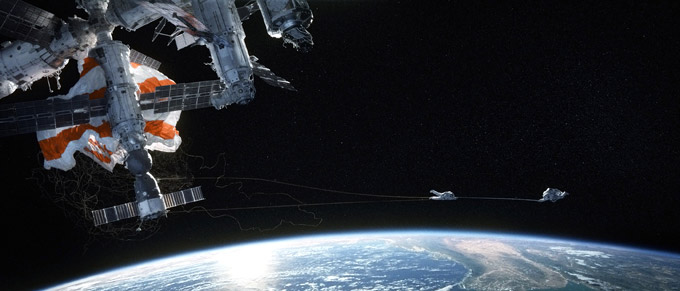
For this, the fourth installment of the MadBlog, the Doctor has concocted an interactive text with a different format than of the previous three entries. But it is nothing new, if you are familiar with the “choose your own adventure” story form. In a nutshell, at various points in the text, you will be obliged to decide between paths in order to proceed.

If only you could see the frenzied disarray which has overtaken my laboratory. Apologies for the long silence since my last communiqué. But I will ignore the chaos for a few moments and offer this MadBlog entry, for your consideration. I post this just a few hours after hearing of the passing of Alain Resnais, and a few minutes before the year’s greatest self-congratulation party, the Oscars, begins its broadcast. The confluence of these two events has me wanting very much to talk about movies.
I want to say something—or rather, I want to say a few things, not all in agreement with each other, all at the same time—about Gravity. Directed by the gifted craftsman Alfonso Cuarón, the film is currently hurtling toward the Oscar ceremony with a number of nominations. Mine will be a convoluted discourse, but I shall make it easy on you by breaking it into short, forking paths. You only need follow one path, but you are welcome to start over again and again, and carve a different route each time.
The film stars Sandra Bullock and George Clooney as astronauts in a pickle. The setup is a breathless suspense scenario par excellence: Bullock’s character bumps around through a series of increasingly unlikely difficulties whilst spacewalking in zero gravity, 372 miles above ground. Her predicament tests, and eventually reawakens, her will to live. Having survived—spoiler alert—she lands on the ground and laughs.
The plot is not the backbone of this movie, just a connective tissue. Its screenplay, written by Cuarón and his son, Jonás Cuarón, is really the one facet of the film which mainstream critics have agreed to disdain. This goes for the less mainstream critics, too—like J. Reichert of Reverse Shot, who cannot abide such a weakness: “And thus another well-mounted, effective actioner dies a slow death, sacrificed at the altar of the cruel pagan gods of Screenwriting 101.” Fret not, sour critics, for Cuarón and Cuarón’s script is only a pretext for the film’s driving force, which is neither storytelling nor the transmission of theme (humanism, the fragility of life, blah blah blah). What moves this film is movement…momentum…stoplessness. Let me try to explain…
Please choose one: